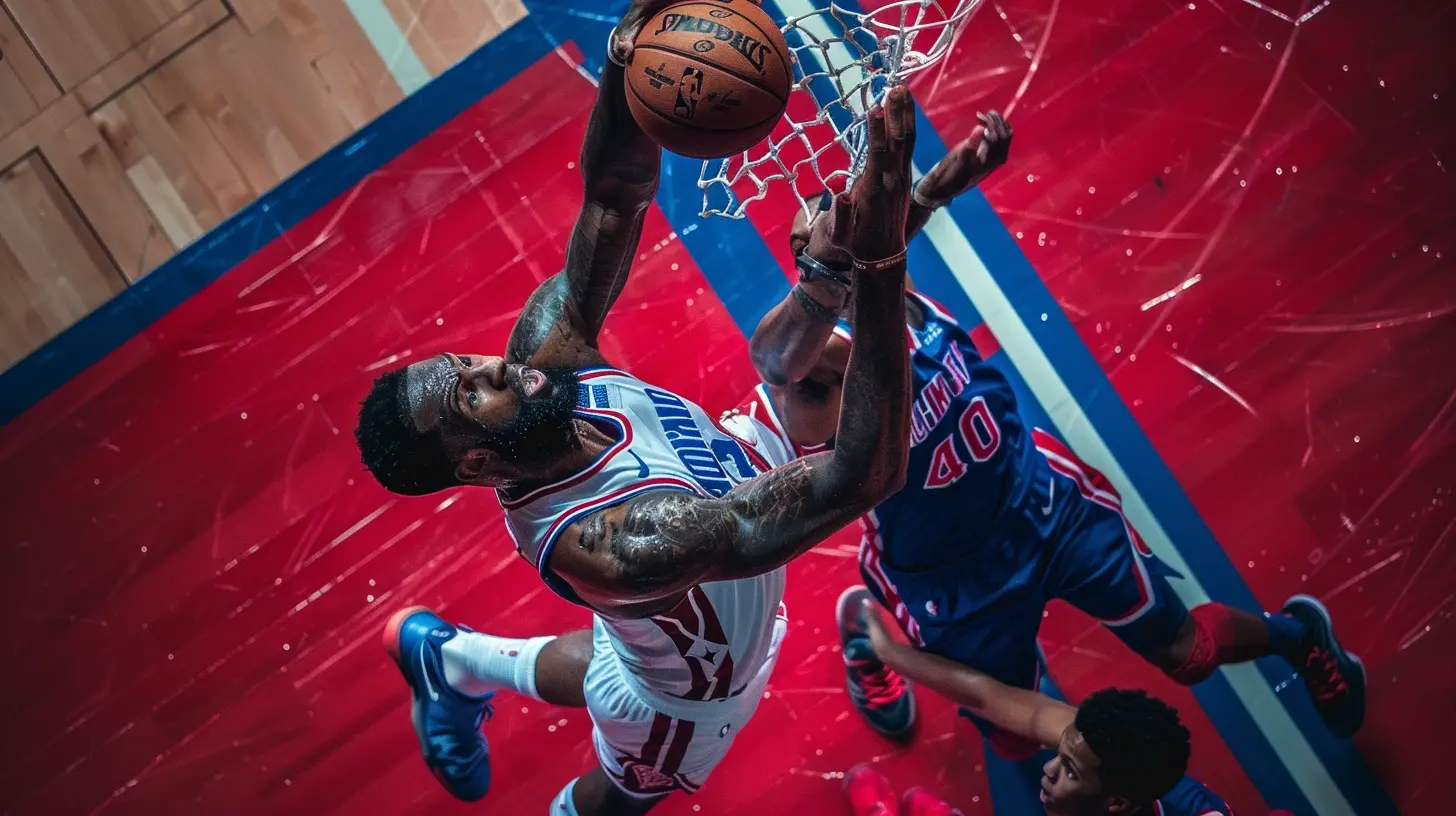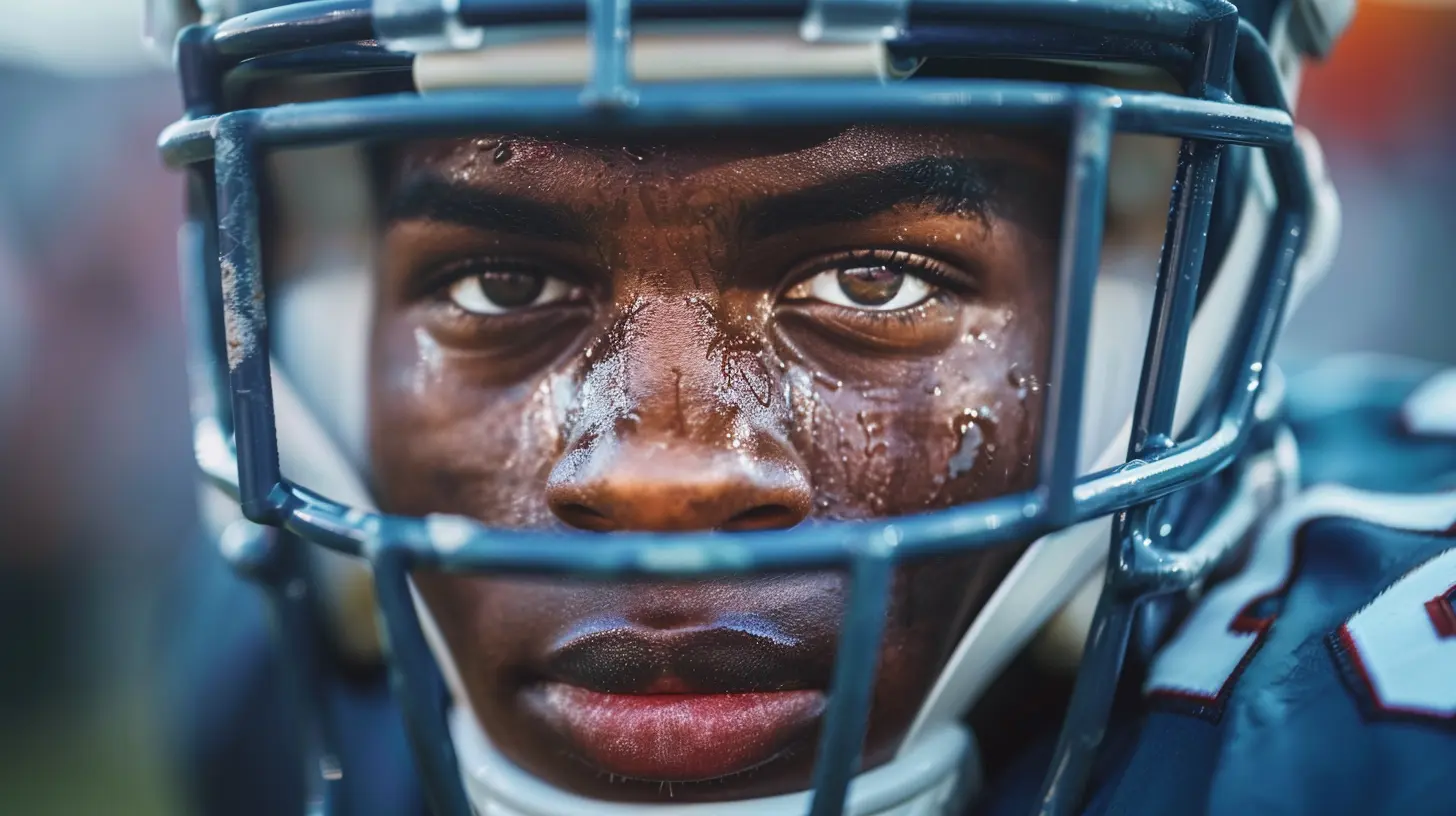How Free Agency Impacts Rookies and Young Players
2 October 2025
When people talk about free agency, the focus usually shifts to the big names and blockbuster contracts. You know — the star athletes who’ve earned the right to test the waters and cash in. But there’s another, often overlooked group that feels the ripple effects of those high-profile moves: rookies and young players.
Let’s be real. Free agency can make or break early careers. It can open doors, close them just as fast, or keep young players on the bench longer than they’d like. So in this deep dive, we’re peeling back the curtain on how free agency really impacts rookies and up-and-coming talent across major sports leagues.

What Is Free Agency, And Why Does It Matter?
Okay, quick recap. Free agency is when a player’s contract expires and they’re free to sign with any team. No trades, no restrictions (in many cases). Just a team and a player hammering out a new deal.For franchises, it’s a chance to fix problems or chase a championship. For veterans, it’s payday. But for young players and rookies? It’s… complicated.

The Tough Reality for Rookies
Roster Spots Are Scarce
Let’s say you’re a rookie trying to make your mark. You’ve been grinding through offseason workouts, adjusting to the speed of the pro game, and hoping to earn a spot in the rotation. Then your team signs a proven free agent who plays your position.What’s the first thing to go? Your minutes… or worse, your spot on the roster.
Teams only have so many active slots. When a veteran joins the team, coaches often trust experience over potential — at least in the short term. So that big-name signing? It could very well push a rookie further down the depth chart.
Development Gets Delayed
Playing time is gold for young players. You simply can’t grow without game reps. But free agency often puts a pause on that development.Even if you're a high draft pick, if the team wants to win now, they’ll lean on vets. So instead of developing on the court or field, young players might spend more time watching from the bench, practicing with the second unit, or even getting sent to developmental leagues like the G-League in basketball or Minor League Baseball.
Confidence Can Take a Hit
Imagine being drafted to a team, thinking you're part of their future plans — only to see them sign someone at your position just weeks later. It can mess with a rookie's mindset. The message feels loud and clear: “We’re not ready to rely on you just yet.”Confidence is everything, especially in the early stages of a career. When free agency changes the depth chart overnight, young players often need to work double time to prove they belong.

The Silver Lining: Opportunity in Disguise
It’s not all doom and gloom, though. Free agency can also open doors — especially when teams lose players, rather than gain them.Vacated Roles = Instant Playing Time
When a team loses a veteran to free agency, it can create a vacuum. And guess what? Teams often fill that hole with young talent. It’s cheaper, faster, and sometimes just as effective.Think about it: if a starting cornerback in the NFL signs elsewhere, the team might slide in a second-year player or give a rookie a shot during training camp. Boom — just like that, the path clears.
Flexibility to Impress
Many young players shine when they’re forced into action due to free-agent departures. They get more touches, more snaps, more innings — and with that, more chances to show what they've got. Some breakout stars were never part of the original plan — they just grabbed their moment when free agency changed the script.Take the NFL or NBA — every year, there’s a second-round pick or undrafted player who turns heads in preseason simply because they get the reps veterans left behind.

Cap Space and Contracts: The Business Side of Things
Let’s talk money for a second. Salary caps — those spending limits teams have — affect everything in pro sports. And when a team spends big in free agency? There’s usually less money to go around for everyone else, including rookies.Rookie Contracts Are Slotted
In most leagues, rookie contracts are on a scale. There's not much negotiation — your pick number determines pay. But where things get tricky is when teams use up cap space on free agents. It can impact whether they hold onto draft picks, sign undrafted rookies, or make trades for younger assets.Cheap Labor Is a Hot Commodity
On the flip side, young players with small contracts become incredibly valuable once a team signs superstar talent. Why? Because they’re cheap and provide needed depth.If a team signs a $40 million quarterback, they’ll need to fill out the roster with low-cost talent — and that's where rookies come in. So free agency, in that way, can boost a young player’s chances of sticking around.
Veteran Mentorship: A Hidden Benefit?
Let’s switch gears and talk relationships. While competition for playing time is real, free agency often brings seasoned vets into the locker room — and that can be gold for development.Learning from the Best
Playing behind a top-tier free-agent signing isn’t the worst thing. Imagine being a rookie wide receiver learning from someone who’s been to the Pro Bowl five times. That kind of mentorship doesn’t show up in stat sheets, but it makes a difference.Many young players credit veterans for shaping their work ethic, teaching film study habits, or even helping them navigate finances. Sometimes, the best thing a rookie can do is soak it all in.
Culture Carriers
Free agents are often brought in as “culture guys.” That means they’re leaders, pros, tone-setters. Young players benefit by being around professionals who set the standard — on and off the field.
Shockwaves Across the Depth Chart
Here’s a truth bomb: free agency doesn’t just affect the person being signed. It shifts everything.Positional Chains
When a team adds a veteran at one position, it triggers a chain reaction. For example, signing a veteran second baseman might force the starting shortstop to shift positions — which pushes the bench guy even further down, and so on. Young players are always somewhere in that chain.Trade Bait or Developmental Projects?
Sometimes, young players become trade pieces after a free-agent addition. Other times, they’re sent to the G-League, minor leagues, or scout team to “develop.” Free agency decisions can often dictate which path a young player takes, and it’s rarely up to them.The Agent’s Role: Navigating Free Agency as a Rookie
Let’s not forget — navigating the chaos of free agency isn't something rookies do alone. Good agents play a massive role in helping young players find the right fit, dodge bad situations, and even request trades if necessary.They’re the ones reading the tea leaves when a team signs a big name. A sharp agent will tell a rookie, “Hey, maybe it’s time to look elsewhere for opportunities,” or “Hold tight — an injury or trade could open the door.”
League Differences: NBA vs NFL vs MLB
Each league handles free agency and rookie development a little differently.- NBA: With smaller rosters, playing time is limited. Free agents often mean fewer opportunities for rookies unless a team is in full rebuild mode.
- NFL: Injuries are common, so even if a free agent signs, young players often get their shot during the season. Still, cap space is tight, so rookies are essential for filling rosters.
- MLB: Free agency plays a delayed role. Most rookies spend years in the minors before hitting the big leagues. But when a vet leaves? Prospects often get the call-up faster.
Case Studies: Real-World Examples
Let’s make this more concrete. A few real-life examples show how free agency can swing either way for young players.- Patrick Mahomes (NFL): Sat behind veteran Alex Smith during his rookie year. That free agent presence delayed his debut but ended up preparing him brilliantly.
- Jordan Poole (NBA): Benefited from minutes when the Warriors didn’t bring in high-cost free agents. His rookie season was rough, but the opportunity paved the way for a breakout.
- Julio Rodríguez (MLB): Mariners lost veteran outfielders to free agency. Rodríguez got his shot sooner and became a star. Right place, right time.
The Balancing Act: Front Offices Walking the Tightrope
General managers have to balance short-term wins with long-term development. They want to sign free agents to compete but also need to nurture their young players — the future of the franchise.Some teams do this extremely well. Others… not so much.
There’s a fine line between building a veteran-laden team and stunting rookie growth. The best organizations find ways to do both — think Boston Celtics, Kansas City Chiefs, or Tampa Bay Rays. They sign experienced talent but still give young players real, meaningful roles.
Final Thoughts: It’s a Double-Edged Sword
Here’s the takeaway: free agency is a double-edged sword for rookies and young players. It can block their path or kick open new doors. It can delay development or accelerate it, depending on timing, team needs, and plain old luck.If you’re a young player, you’ve got to stay ready — because the landscape changes fast.
And if you’re a fan? Keep an eye on the young guys. Free agency tells one story, but the future of your team might just be sitting on the bench… waiting for their moment.
all images in this post were generated using AI tools
Category:
Free AgentsAuthor:

Everett Davis
Discussion
rate this article
1 comments
Galina Banks
What an exciting time for rookies and young players! Free agency opens up new opportunities and inspires fresh dreams. It’s a joy to see talent mix and match, creating thrilling dynamics. Can’t wait to see how these changes shape the upcoming season! Let the fun begin!
October 13, 2025 at 4:35 AM

Everett Davis
Absolutely! Free agency offers rookies a chance to shine and teams to build dynamic rosters. Exciting times ahead!


